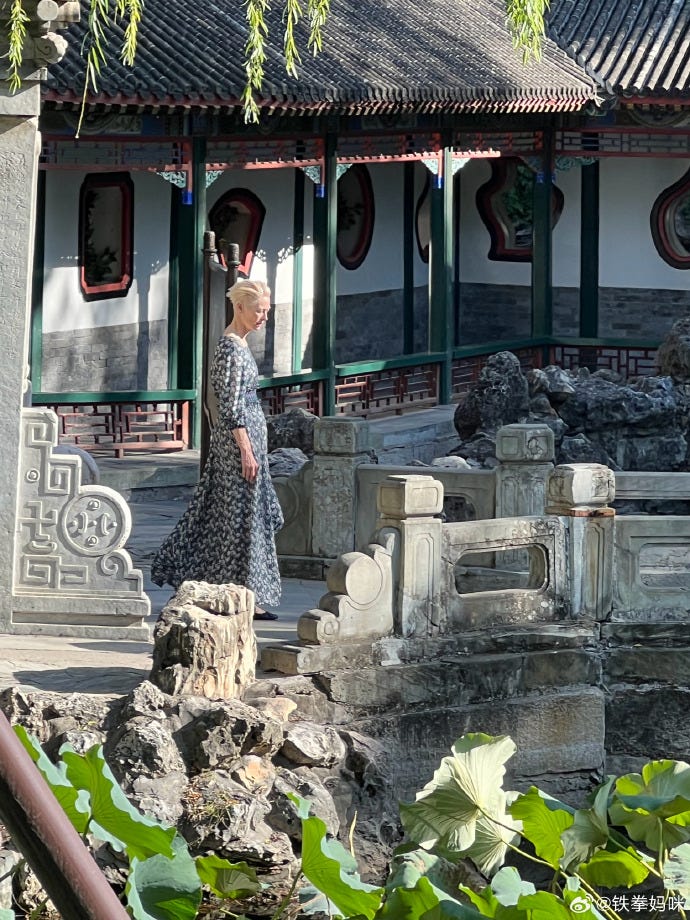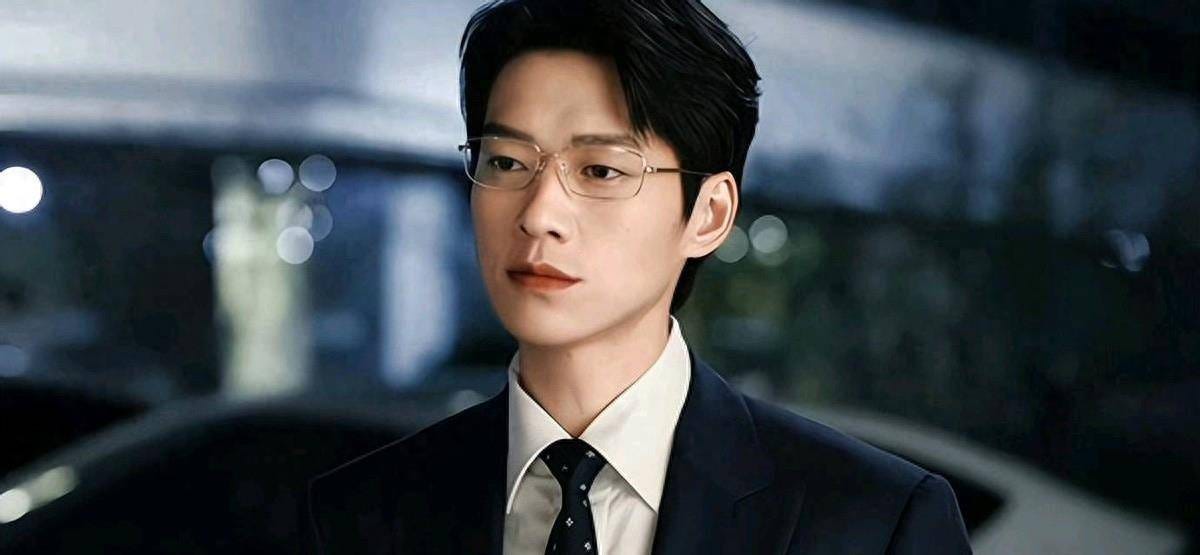01. Vibes Only
Predictions of Entertainment in 2024 (Unofficial)
Hi there. Welcome to Active Faults.
Again I find myself burdened by the pressure of writing a monumental post to mark a new year. I did, though, come up with something fun.
Here are the official Active Fault predictions of Chinese entertainment in 2024 (completely unofficial and mostly unserious).
First of all, it feels like neiyu is gearing itself to welcome a lot of foreign guests over, offering reality show cameos or tour approvals in the spirit of hospitality. I’m seeing signs of this already. K-Pop idols are attending more fan meetings and events hosted by Chinese entertainment agencies. They are opening official accounts on Bilibili and posting more frequently on their Chinese social media accounts. Weverse Shop, HYBE’s official merch marketplace is shipping to mainland again. Keshi and Charlie Puth performed in Shanghai last year and my Wechat moments were flooded with clips. Timothee Chalamet’s “Wonka” premiered in China before it was released in the U.S. Tilda Swinton was spotted in Summer Palace and went viral for having an aura of a mystic guru.
It looks like 2024 will see a heightened presence of non-Chinese celebrities in neiyu not necessarily because “foreign influences” are more tolerated, but because there are profits to be gained. I’ve mentioned before that the immense spending power of Chinese fans does not correlate to a higher expendable income across the demographic. It has more to do with the intention: an above-average willingness to pay for entertainment. A popular meme in fanquan is how friends my age are financially drained by weddings, property mortgages, car debts and nappies, while I’m packing to fly overseas for a concert. We’d stay youthful that way, argues many young women. Consuming entertainment, commercially and emotionally, is itself a resistance to societal norms. Both the state and the sector are aware of this.
Of course, this recent development is bound by the direction in which the political wind blows and that is always a mystery. In what is dubbed as the Election Year where over 50 countries will send their citizens to the polls, it is hard to say how much space can foreign artists carve out in neiyu at the end of the day.
Content-wise, I expect less romance everywhere.
The past year saw the actor Yang Yang (杨洋) losing his title of the Romantic Drama King. His successful career, almost exclusively propped up by dashing heartthrob roles, experienced a disastrous dip with the show “Fireworks of My Heart” (我的人间烟火). Severely criticised for his depiction of an ego-inflated, misogynistic firefighter, this newfound distaste of Yang in fanquan exemplifies a general rejection of traditional sexual politics in the series. The old days of kabe-don and damsel-in-distress are over. Audiences were outraged at Yang’s lines that “playfully” bashed the female lead as someone “too old to pretend to be cute”, or the way he “protects” her with his strong body from the not-crowd on an empty subway train. This stereotypical portrayal of verbal abuse disguised as “pursuit of love” and superiority complex disguised as masculine appeal is no longer fooling the majority.
He joined a winding list of out-of-favour male actors who are too “greasy” (油腻), meaning too cheesy, cocksure, and annoyingly aware of their attractive looks. To me, it feels like more and more fictional roles and real-life celebrities are being (quite rightly) labelled as such. More and more people are seeing the glamourisation of a power imbalance in the genre, and the inherent sexism that often underpins any and all artistic narratives within the industry. Coupled with an aversion towards pro-marriage policies as the state attempts to boost our birth rate, I suspect fandom will become even less drawn to 偶像剧/言情剧 for the messaging it contains, unless it showcases a slightly healthier relationship where both leads are on equal footings.
Some of the most successful shows in 2023, like The Knockout (狂飙), are aromantic at core. Blockbusters during Christmas and year-end have been a flood of action features or crime thrillers. The only exception of an About Time-ish romantic picture, Shining for One Thing (一闪一闪亮星星) became widely discussed not because of its epic multiverse love story, but its special “surprise fake-snow screenings” inside select theatres. A well-timed full blast of flakes would allow the audience to viscerally experience a critical longing scene in the film in all its glory. This spectacle gave the film an extra edge that renders plotlines inconsequential. I’m sensing a pattern here.
Something else I’ve noticed is the revival of old favourites, in every sense of the phrase. Stars that had their heyday in our parents’ generations, like Tony Leung (梁朝伟) or Kris Philips (费翔) have been hauled back into the business upon popular demand and resurfaced in public chatterings. I also remember Aaron Kwok (郭富城) going viral at one point for a blurry clip of him singing on stage when he was 18, looking like Leo in Titanic with the same kind of boyish charm. Many find their talent, looks and diligence like a breath of fresh air that sets them apart from the younger celebrities, who are perhaps overpaid for less than adequate skillsets. Likewise, widely beloved films from the past decade like La La Land are rushed into the cinemas when there aren’t enough newer releases.
It seems like neiyu feels ever so acutely that “the green and the yellow are not joining” (青黄不接), an age-old expression describing a temporary shortage where the mature crops have been harvested but the fresh shoots have not grown. Audiences are fatigued by extremely polished, assembly-line celebrities of this epoch who are hollow-centred when you knock on them, and return to the classics in exhaustion.
One of Tony Leung’s magnetisms this time round is his “relatability” as a quiet introvert who’s slightly socially awkward, as mega-famous as he is. He almost comes off as dorky with how he fidgets and mumbles under too much attention, but articulates his character perfectly well with a calm poeticism. Younger neiyu fans find that contrast (反差) adorable, in a way not unlike how Cillian Murphy is received and fanned over on Twitter. I’m seeing many instances of this kind of unexpected “virality” about the quirkiest thing, hence a sudden surge of success for celebrities who are not meant to “pop off” in that context.
My last prediction is therefore the impossibility to accurately predict neiyu this year. The market is so oversaturated with different endeavours at capturing the audience’s curiosity it’s basically all chance. I know this for sure though: whatever it is that succeeds in the end will be less and less generic, coherent and sensical. I highly doubt that new franchises on the scale of Star Wars or Marvel can ever secure a share of neiyu again, when we’re in the era of two-minute douyin movie runthroughs (电影解说) that saves you the two hours of watching the entire film. News of an upcoming season of Produce Camp (yes, sounds like xuanxiu is returning) is barely talked about. My wild conjecture is that the public’s attention will be captured by fragments only. The occasional “vibes”, a whiff of something that’s stimulating in that instant.
Wei Daxun, the second male lead of “Fireworks” became the surprising winner out of the show when everyone anticipated Yang Yang to succeed. His characterisation, much more likeable than Yang’s, gave his comedian-turned-actor career a 180 and refurbished his image entirely.
He was one of the hot searches during Weibo Night, the platform’s annual red carpet gala to commemorate which celebrities’ social media metrics did the numbers this year. The hashtag was “Wei Daxun fully flaunting his ‘S’ vibes” (‘魏大勋S感拉满’), S standing in for sadist. His all-leather look and gold-rimmed glasses vaguely recall his CEO character in “Fireworks”, which many found attractive because he was this dominant yet self-restraining, loyal rebound guy. A lot to unpack here, right?
In the next issue, I need to walk you through the vibes of men that are in trend now in Chinese entertainment and, by association, the change in female fans’ sexual fantasies.
See you soon!







Slightly related but it would be such a welcome development if Chinese entertainment abandoned the whole 霸道总裁 trope. I never got how audiences ever found that stuff acceptable and it made watching some cdramas really tough
As someone who has been trying to navigate Chinese entertainment culture and figure out what is going on with very little success, this substack is so delightful. I love finding someone who can articulate things that are at the edges of my comprehension to help me get a firmer grasp on the things I'm interested in. Thanks!